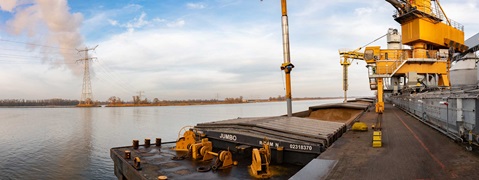Biomass is a collective term for organic (vegetable) fuels and raw materials. The term refers to any type of organic material, in other words anything that originates from plants and animals. Substances of organic origin that have been transformed by geological (fossil) processes, such as coal and natural gas, are not biomass.
Biomass can be converted into energy. Organic material, such as agricultural products, vegetable waste, wood, manure, vegetable oil and pruning waste, is used for this purpose. It is produced by means of incineration, fermentation or gasification.
In the Netherlands, we primarily use woody residual and waste materials to generate electricity and heat. This is done in large energy plants, such as the Amer power plant and Eemshaven power plant, but also in smaller local plants and domestic boilers. In its power plants, RWE is currently using pallets: granules of dried wood. These products are a residual product from sustainable forestry and the wood and paper industry. RWE is also conducting research into alternative types of biomass, especially bagasse (a residual product from the sugar industry).
